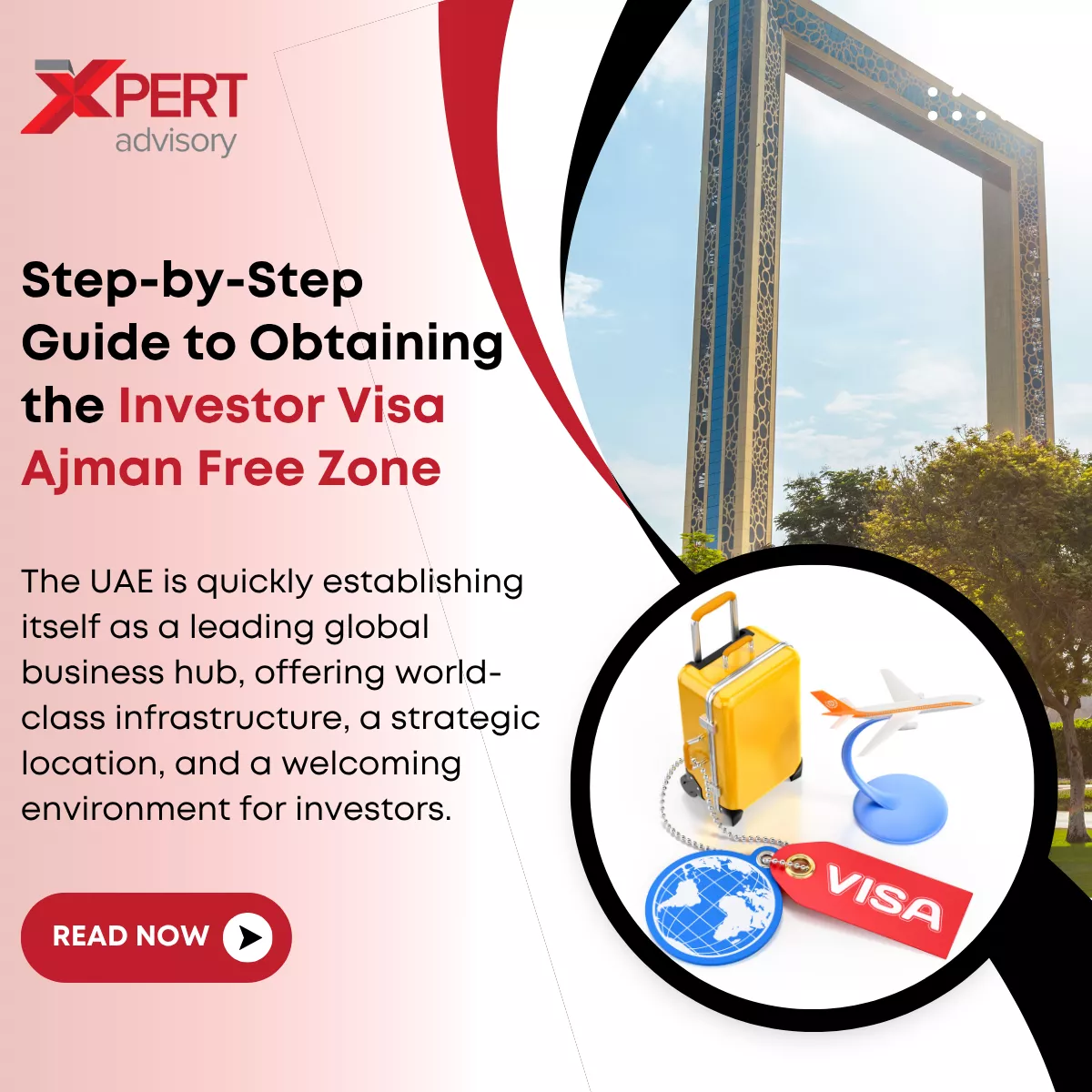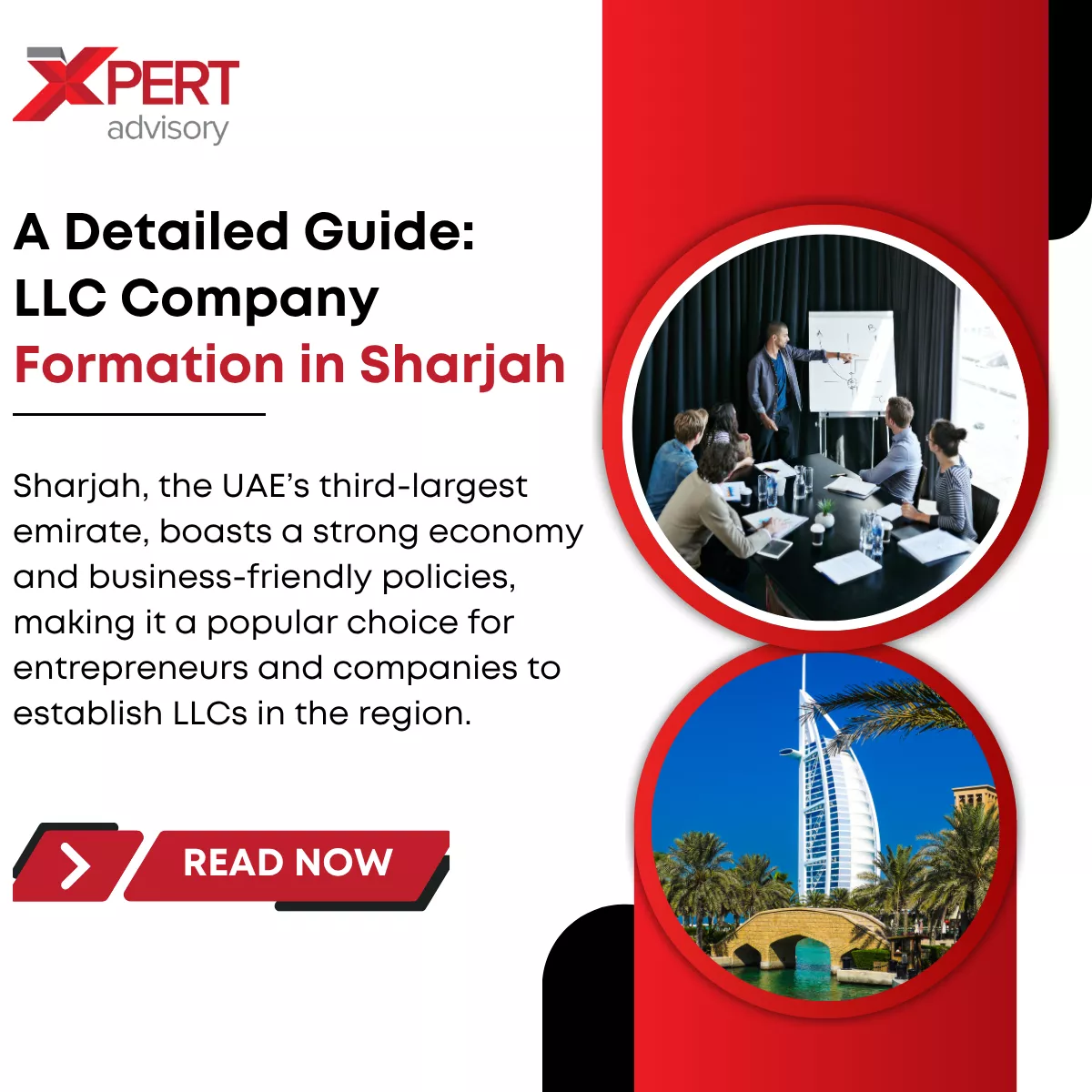Starting a business in Dubai doesn’t have to be expensive! With its booming economy, strategic location, and investor-friendly policies, Dubai offers a variety of low-cost business setup options for entrepreneurs looking to establish their presence. Discover how you can unlock the potential of low-cost business setup options in this dynamic city and take the first step toward your entrepreneurial success. Whether you’re a budding startup or an established business seeking expansion, this guide will simplify the process and help you make the most of Dubai’s affordable business solutions.
Why Start a Low-Cost Business in Dubai?

Dubai is a global business hub that offers entrepreneurs the unique opportunity to establish their ventures affordably while tapping into one of the world’s most dynamic markets. Its strategic location as a crossroads for international trade, business-friendly environment, and world-class infrastructure create a strong foundation for startups. With benefits like flexible licensing options, tax-free zones, and access to a diverse, high-spending population, the city makes it easier for businesses to thrive with minimal investment.
Additionally, Dubai’s government actively supports small businesses and startups through initiatives that reduce financial risks and foster growth. Whether you’re looking to boost your income, transition between jobs, or turn a passion into a thriving business, Dubai provides the perfect platform. A low-cost business here not only offers the freedom of self-employment but also the potential for long-term success in an ever-expanding market.
Why is Dubai the Ideal Choice for Low-Cost Business Setup?
Setting up a business in Dubai can be both cost-effective and rewarding. With its streamlined processes and entrepreneur-friendly regulations, Dubai provides an ideal platform for launching ventures without significant financial strain. From low-cost business setup options to a robust ecosystem of support services, the city empowers aspiring entrepreneurs with the resources they need to succeed. Here’s why Dubai stands out as a preferred destination for low-cost business ventures:
Global Financial Hub
Dubai’s strategic geographical position makes it an ideal global financial hub in the provision of efficient operating models in worldwide markets. Its ‘power 8 till 8’ time zone allows seamless coordination from East to West within a single business day. For instance, Dubai’s financial organizations enable real time dealing as well as investing across the multiple time zones which ultimately increase the efficiency, effectiveness and intelligent choice of the concerned enterprise. Also, it keeps supplies and costs of production low by having business ties with nearby manufacturing giants such as China, India and Europe.
Magnet for Businesses and Investors
Dubai attracts all the spectrum categories of business and investment funds along with visionaries. Its pro-business policies, robust regulatory framework, and unparalleled growth potential have drawn industry giants like Microsoft, Amazon and Google to establish operations here. Whether one’s interest is in fintech, e-commerce or simply the regional headquarters, Dubai holds plenty of opportunities for young businesses to succeed.
Connecting the World
Dubai is a global connectivity hub with the world’s busiest international airport and a thriving seaport, facilitating smooth trade flows and logistics. Its advanced digital infrastructure ensures high-speed communication and seamless data transfer, essential for businesses operating in today’s interconnected world. Entrepreneurs gain control in reaching out to different major economies and emerging markets with easy management of operations and market access.
Global Hub for Talent
Dubai’s open visa policies, exceptional lifestyle, and vibrant business ecosystem attract top-tier talent from around the world. Whether you need seasoned professionals, innovative entrepreneurs, or skilled specialists, Dubai’s talent pool is diverse and ready to meet business needs. Those in need of professional services from fields such as finance, marketing, and technology will easily secure the right workforce to move their businesses forward.
Future-Forward Innovation
Dubai’s commitment to innovation and emerging industries makes it a city of the future. With initiatives focused on artificial intelligence, renewable energy, and smart city developments, Dubai provides entrepreneurs access to cutting-edge technologies and research facilities. From leveraging artificial intelligence technology to drive efficiency into your operation or integrating efficient energy solutions into your business, you will be equipped with what is relevant in your industry at any one time.
Thriving Quality of Life
Dubai isn’t just about business; it’s about creating a balanced life. The city offers world-class amenities, a safe environment, and a multicultural community, making it an attractive destination for entrepreneurs and their families. Dubai offers everything starting from magnificent living spaces, and mouthwatering foods from all over the world to leading schools and universities that are the epitome of excellence to support your business.
Step-by-Step Guide to Low-Cost Business Setup in Dubai

Setting up a low-cost business in Dubai is a streamlined and efficient process, typically taking 2-4 weeks. It involves obtaining a business license, completing security approval, immigration registration, investor visa processing, medical checks, and biometrics. Collaborating with a business setup consultant can help speed up the process while ensuring cost savings. Here’s a detailed breakdown of the essential steps:
1. Choose Your Location
The first step is selecting the right jurisdiction for your business. Free zones offer lower costs and 100% foreign ownership, but they restrict access to local markets. Mainland setups, as the name suggests, offer access to local markets but may have different cost implications. Choose a location that aligns with your business goals and budget.
2. Define Your Business Activities
Clearly outline the activities your business will engage in. This ensures that your licensing process is smooth and compliant with regulatory requirements. Failure to classify activities rightly or to include certain activities may cause some repercussions hence the need to be very correct.
3. Select a Unique Business Name
Choose a trade name that complies with Dubai’s naming conventions. The name should be simple, unique and respectful. It should not use abusive words and should not be close to any names. This way you avoid having your business name rejected in the process, causing delays.
4. Obtain Initial Approvals
Submit all necessary documentation to the relevant authorities for approval. For mainland businesses, the Department of Economic Development (DED) will oversee this process, while Free Zones have their own governing bodies. A business setup consultant like Xpert Advisory can understand all legal requirements and formalities and keep all documents in the right place without causing delays or rejections.
5. Apply for a Trade License
After initial approval, apply for your trade license, which is essential for legally operating your business in Dubai. The type of license you need will depend on the business activities and chosen location, the type of license required will therefore be required.
6. Apply for Visas
Once the trade license is issued, you can apply for establishment cards and visas for shareholders, employees, and family members. The number of visas available depends on the size of the office space and the nature of the business. The management of visas is as important as any other aspect in order to be in compliance with the law and at the same time do it efficiently.
Key Benefits of Low-Cost Business Setup in Dubai
Affordable Market Entry
Dubai is an affordable entry point into one of the most dynamic economies presenting great business opportunities to build a presence for little cost. This makes it an ideal business place for entrepreneurs who have little capital, but they want to launch a business in Dubai.
World-Class Infrastructure
Dubai is one of the top choices for entrepreneurs due to its advanced infrastructure, including world-class logistics, communication systems, and transport networks that ensure smooth operations. This provides broadband connectivity guaranteeing that business gets to grow and have easy access to regional and even international business markets.
Tax-Free Environment
Dubai offers major advantages of no personal income tax and low corporate tax which enables the companies to use the profits for reinvestment. This makes it very ideal for business people with an intention of making high returns and investments on their business ventures.
Flexible Office Solutions
Cost-effective office options like shared spaces, virtual offices, and business centers help reduce overhead costs while maintaining professional-grade facilities. Such solutions enable business people to expand their space of operations without having to make fixed investments in physical space like the conventional offices.
Streamlined Licensing Process
Dubai’s simplified licensing process ensures businesses can quickly obtain the necessary permits, reducing administrative delays and focusing on growth. Such an effective system enables the establishment to start its operation without many bureaucratic requirements to begin with.
Access to Free Zones
Free zone advantages include full foreign ownership, no customs taxes, and cheap packages, which help startups and SMEs to set up businesses. These specialized zones provide tailored support for businesses in a variety of sectors, fostering industry-specific growth.
Government Support for Startups
The UAE government actively supports small businesses through incentives, funding programs, and training opportunities, ensuring long-term growth and sustainability. With strong governmental backing, entrepreneurs can confidently navigate the challenges of launching and expanding their new businesses.
Strategies for Achieving a Low-Cost Business Setup in Dubai
To maximize savings on your business setup in Dubai, strategic decisions and careful planning are essential. Here are some effective strategies to reduce costs:
Embrace Flexibility
If your business doesn’t require a physical office, consider flexible desk options instead of committing to long-term office space. Shared workspaces or hot-desking options can significantly decrease the costs of rent while having a corporate space when necessary. This is advantageous since it sustains low overheads and reasonably distributes resources needed to achieve cost-efficient structure.
Opt for a Virtual Office Address
Consider a virtual office solution rather than investing in a traditional physical office address. Virtual offices offer clients a business address and other services including management of mails and answering phone calls all through without the need to pay for a physical commercial building. It is very effective to use to build up a company’s voice and image without having to spend a lot of money in setting up a complex organizational structure.
Choose Business License Packages
Select comprehensive business license packages that include visas, permits, and other essential services. Bundled packages streamline the setup process by covering all required aspects, eliminating the need for multiple individual services. It also proves to be very efficient compared to others because this approach will eliminate the need to switch between different areas, which helps in business operations and at the same time cuts on overall expenses.
Ensure Legal Compliance
Ensure all your business documents, contracts, and permits comply with Dubai’s legal regulations. Non-compliance can lead to expensive fines and delays, jeopardizing your goal of a low-cost business setup. It is therefore important to abide by the law by avoiding rude shocks in the form of penalties that may disrupt business hence leading to the company’s sustainability and success.
By implementing these strategies, you can achieve a low-cost business setup in Dubai while enhancing efficiency and ensuring long-term success.
How Much Does it Cost to Start a Small Business in Dubai?

Starting a small business in Dubai can be surprisingly affordable with options starting from as low as AED 12,000*. This includes the business license, one shareholder, a lifetime residency visa, and a flexi office lease. While Dubai is often seen as an expensive market for business owners, many free zones offer attractive packages that make it accessible for entrepreneurs with smaller budgets.
The cost to set up a business in Dubai can vary depending on factors such as location, legal form, and business activities. However, here is a typical breakdown of what costs might look like:
- Business License with 0 Visa: Starts from AED 6,500 per year
- Service Provider Fee: Starts from AED 2,000
- Office Rental: Varies based on space and facilities, ranging from minimal to more depending on the requirements
Free zones often offer more budget-friendly options for business setup, as they tend to include flexi desk options within the license package itself. Mainland businesses, while offering broader market access, may require more diligence due to compliance requirements, which could increase costs.
Low-Cost Business Ideas for Setting Up in Dubai
Dropshipping and E-Commerce Stores
E-commerce and dropshipping businesses are among the most affordable ways to start a venture in Dubai. You don’t need a physical store or warehouse as products are shipped directly to customers. This cuts down the costs and makes it easier for the entrepreneur to market and sell the products. It can also help to reduce costs since establishing a company in the free zones of Dubai also opens the possibility to license it at lower rates.
Consultancy Services
Dubai is a prime location for various consultancy services, such as professional business, IT, legal, and financial consulting. This type of business can be run with minimal investment, often remotely or from home. With the growing demand for expertise across industries, this sector provides excellent opportunities for entrepreneurs with niche skills.
Digital Marketing Agencies
With the increasing importance of online presence, digital marketing agencies are in high demand. Whether it’s SEO, social media marketing, content creation, or even website development can start with low overhead if he is willing to work remotely. There is high potential in Dubai to satisfy the ever-growing demand for organizations to digitalize their business operations.
Human Resource Outsourcing
Many companies in Dubai, especially small and medium-sized enterprises, prefer outsourcing HR functions like recruitment and payroll management. This business requires minimal capital investment and can be operated remotely. With businesses continually seeking HR support, this service offers steady growth potential.
General Trading
Dubai has become a global trading hub, making general trading a lucrative business opportunity. A general trading license allows you to engage in the importation and exportation of goods of all kinds of products such as electronics, textiles, and constructional items. Operating from a free zone in Dubai can be less expensive because most of the free zones in the region provide cost-efficient services such as; assignable working space and reasonable permitting charges.
Freelancing Business
Freelancing in Dubai is a great low-cost option for professionals skilled in areas like writing, graphic design, photography, or IT. Freelance permits are cheap, and it is not useful to rent commercial premises. This business model is good for such people who would like to work alone with less capital to invest initially.
Food Delivery or Cloud Kitchen
Setting up a cloud kitchen or food delivery service is an excellent low-cost business idea. Without the need for a physical restaurant, you can prepare food in a shared kitchen space and partner with delivery services like Uber Eats or Zomato. This minimizes overhead costs while still tapping into the booming food and beverage market in Dubai.
Low Cost Business Setup in Dubai Free Zone vs Mainland
When planning a low-cost business setup in Dubai, entrepreneurs can choose between Free Zones and the Mainland. Each jurisdiction has unique features and advantages, so understanding the differences can help you make the right decision based on your business needs and budget.
Ownership Differences
- Free Zones: Grant 100% foreign ownership right from the start.
- Mainland: Traditionally limited foreign investment to 49% and only the recent liberalization permits various sectors to own 100% subject to terms and conditions.
Business Scope Variations
- Free Zones: Limited to the Free Zone; reducing the scope of business activity outside the UAE; most direct sales to the UAE market need a UAE distributor.
- Mainland: Businesses can operate across the entire UAE without restrictions.
Workspace Requirements
- Free Zones: Allow flexible options such as virtual offices, making it a cost-effective choice.
- Mainland: Often needs at least 200 square feet of an office, which can be expensive.
Visa Eligibility
- Free Zones: Visa eligibility depends on specific Free Zone regulations. Some Free Zones offer generous visa quotas even for small office setups.
- Mainland: The number of visas is typically tied to the size of the office space; larger workspaces allow for more employee visas.
Business Setup Approvals
- Free Zones: Every Free Zone has its own simple and specialized laws which minimize bureaucracy.
- Mainland: Requires approvals from multiple government bodies, which can be time-consuming.
Conclusion
Setting up a low-cost business in Dubai offers incredible opportunities for entrepreneurs aiming to establish themselves in a thriving market without significant investment. By choosing the right licensing options, workspace solutions, and leveraging flexible policies, you can minimize expenses while maximizing business potential. Professional consultancy services, like those offered by Xpert Advisory, can simplify the process, ensuring compliance and helping you achieve your business goals efficiently.
FAQs
1. What is the minimum cost to start a business in Dubai?
The cost of starting a business in Dubai can begin as low as AED 6,500 for a business license with no visa. Additional expenses depend on your business activities, location, and other requirements.
2. Do I need a physical office to start a business in Dubai?
Not necessarily. Certain Free Zones offer flexible workspace options like virtual offices or flexi-desks, which can significantly reduce rental costs.
3. Can I fully own my business in Dubai?
Yes, complete foreign ownership is allowed in many Free Zones, offering a cost-effective and flexible environment for startups and entrepreneurs.






